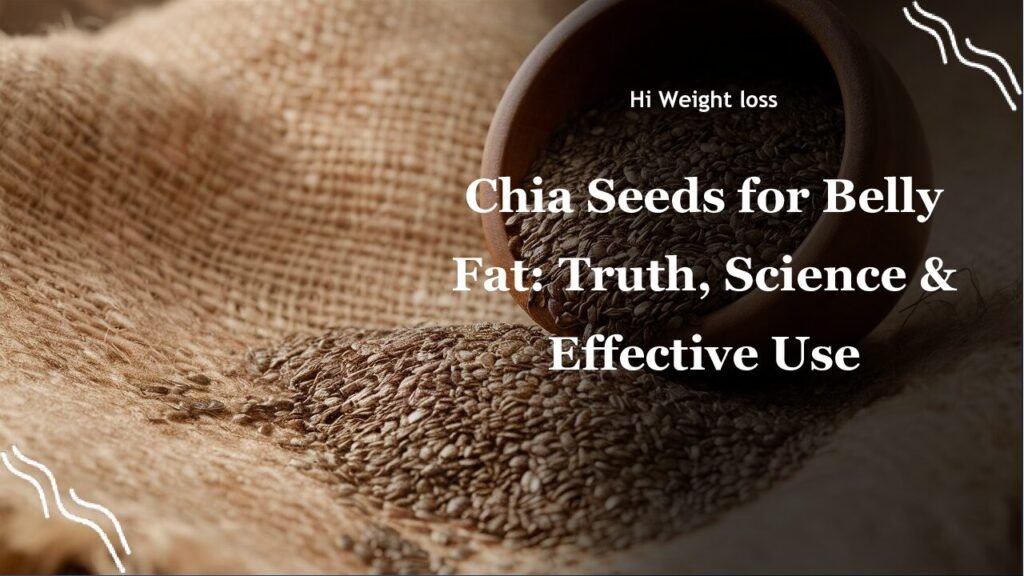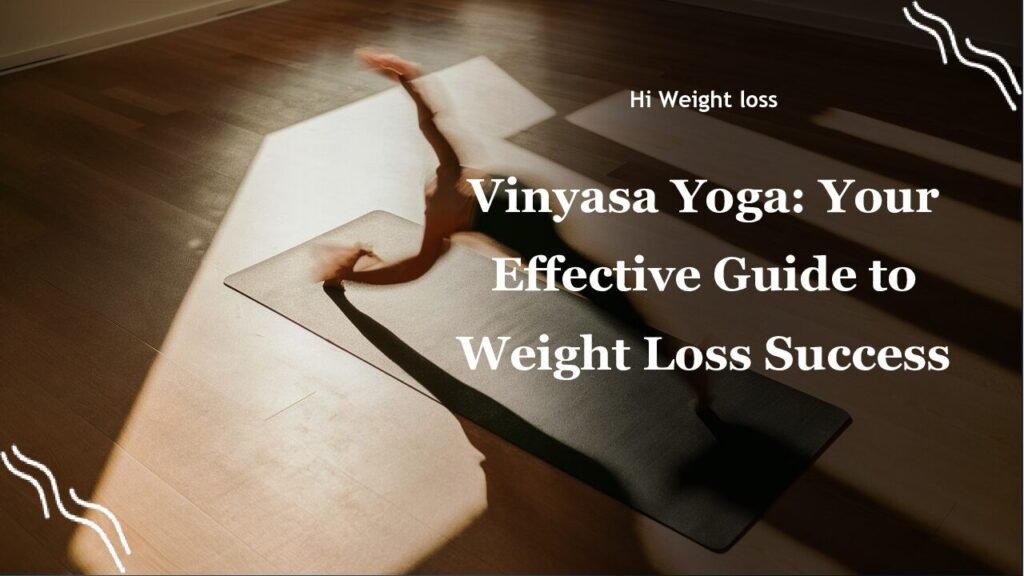“`
Are you struggling to shed that stubborn belly fat and wondering if chia seeds are the magic bullet? It’s a question many of us have pondered, especially when bombarded with health trends promising quick fixes. It’s easy to get caught up in the hype, especially if you’ve tried countless diets that didn’t quite hit the mark. In this article, we’ll dig into what science actually says about using *chia seeds for belly fat loss*, exploring their potential benefits and separating fact from fiction, to help you make informed choices about your health and fitness journey.
Do Chia Seeds Reduce Belly Fat? Unpacking the Science
Let’s cut to the chase: while chia seeds are nutritional powerhouses, the research on their direct impact on belly fat is, well, mixed. The buzz around these tiny seeds often leads to the assumption that they’re a guaranteed belly fat burner. But like most things in nutrition, the truth is more nuanced. A study published in *PubMed* found no significant difference in body composition, including belly fat, between participants who consumed chia seeds and those who didn’t over a 12-week period. It’s a bit disappointing if you were hoping for a straightforward yes, isn’t it?
What the Studies Say About Chia Seeds and Weight Loss
Many people get excited about the potential of chia seeds for weight loss. I remember when I first heard about them, I was excited to try them in my morning smoothies. However, it’s essential to look at what the scientific community has found. The *American Institute for Cancer Research* also notes that studies generally show no direct effect on overall weight or body fat from consuming chia seeds. These findings make it clear that we need to temper our expectations. It seems that chia seeds alone aren’t the key to shedding belly fat, even though they do have other benefits.
Now, this doesn’t mean that chia seeds are useless for weight management. It simply highlights the need for a more holistic approach. I once had a friend who tried to rely on chia seeds alone, neglecting other aspects of a healthy lifestyle; unsurprisingly, she didn’t get the results she was hoping for. So, what benefits do chia seeds actually offer?
The Satiety Effect: How Chia Seeds May Indirectly Help
Here’s where chia seeds start to get interesting. They are incredibly high in fiber, which can help with satiety—that feeling of fullness after eating. This can be an indirect benefit for *weight loss*. A study mentioned in *Medical News Today* found that participants who consumed chia seeds reported feeling less hungry and ate fewer calories at lunch. This increased satiety can help you eat less throughout the day, which can lead to a calorie deficit, which is crucial for weight loss. Think of it like this: if you’re less hungry, you’re less likely to reach for that extra snack, helping you stay on track with your goals.
I’ve personally noticed that adding chia seeds to my breakfast makes me feel full for longer, which helps me avoid mid-morning cravings. It’s not a miracle, but a helpful nudge. The soluble fiber in chia seeds absorbs water and expands in your stomach, creating a sense of fullness. This is a huge help for those of us who struggle with overeating.

How to Use Chia Seeds for Weight Loss
If you want to try using chia seeds to support your weight management goals, how do you incorporate them into your daily routine? The great thing about them is that they’re incredibly versatile. They can be added to smoothies, yogurt, oatmeal, or even water. Let’s explore some methods:
- Chia Seed Pudding: Combine chia seeds with your favorite milk (dairy or non-dairy) and let it sit in the fridge for a few hours. You can then add your favorite toppings, such as fruit, nuts, or a touch of honey.
- Smoothie Boost: Add a tablespoon or two of chia seeds to your morning smoothie. They will thicken it up and add a nice dose of fiber.
- Water Additive: Mix a tablespoon of chia seeds into a glass of water and let it sit for 10-15 minutes before drinking. This is an easy way to increase your fiber intake throughout the day.
When I make chia seed pudding, I love experimenting with different flavors, sometimes adding a bit of vanilla or cinnamon. The texture is also really satisfying, which is a nice bonus. Remember that consistency is key, and incorporating chia seeds regularly into a balanced diet will produce the best results.
Chia Seeds and Cinnamon Water for Belly Fat Reduction
You may have come across the idea of combining *chia seeds and cinnamon water* for belly fat reduction. While this combination hasn’t been extensively studied, the individual components may offer synergistic benefits. Cinnamon has been shown to help regulate blood sugar levels, which can impact weight management. Mixing cinnamon and chia seeds in water is a low-calorie way to boost satiety and potentially support blood sugar control, but it’s not a shortcut to a flatter belly. I’ve tried this myself, and while I enjoy the flavor, I’m mindful of not overestimating its effectiveness.
Keep in mind that you need to adopt a holistic approach towards your health. Remember that the most effective approach to belly fat reduction includes a healthy, balanced diet, regular exercise, and sufficient sleep.
Beyond Belly Fat: The Health Benefits of Chia Seeds
It’s crucial to remember that chia seeds are a nutritional powerhouse even if they are not the direct solution for belly fat. The health benefits of chia seeds go far beyond weight management. They are packed with fiber, omega-3 fatty acids, protein, and various micronutrients. This means incorporating them into your diet can help support your overall health. My grandmother always says that what comes from nature is the best, and I have found that to be true. Let’s take a closer look:
- Fiber: Aids in digestion and keeps you feeling full.
- Omega-3 Fatty Acids: Great for heart health and brain function.
- Protein: Important for muscle repair and overall body function.
- Antioxidants: Help protect your cells from damage.
When I think about all these advantages, I am reminded that they are worth including in my regular meal planning. It’s a reminder that the focus should be on eating a variety of nutrient-dense foods rather than hoping for a single “magic bullet.”
Summary of Key Points
To summarise, while *chia seeds* are a healthy addition to your diet, there is no conclusive evidence to suggest that they will directly reduce belly fat. Their high fiber content, however, can help with satiety, indirectly supporting weight management goals by reducing calorie intake. This is something to consider when you are planning your diet. They also offer a range of other health benefits, including boosting fiber, omega-3 fatty acids, protein, and antioxidants. If you’re looking to lose belly fat, the best approach is to combine healthy eating habits, regular exercise, and a healthy lifestyle, all while enjoying nutrient-dense foods like chia seeds as part of the overall plan.
| Aspect | Summary |
|---|---|
| Direct Impact on Belly Fat | No conclusive evidence. Studies show mixed results. |
| Satiety | High fiber content may help with feeling full. |
| Weight Loss Support | Indirectly through reduced calorie intake due to feeling full. |
| How to Use | Pudding, smoothies, water additive. |
| Other Benefits | High in fiber, omega-3s, protein, and antioxidants. |
Conclusion
So, are chia seeds the secret to a flat stomach? The answer is a nuanced one. While they won’t magically melt away belly fat, their ability to promote satiety can make them a helpful addition to a weight management plan. Remember the story of my friend who relied solely on chia seeds? Her experience taught me that no single food is a magic bullet, including chia seeds. It really comes down to building a sustainable, holistic strategy. Embrace chia seeds for their many other health benefits, but also commit to a healthy diet and regular exercise. It’s the consistent effort that will make a difference in your health journey. Share this article if you found it helpful, and let me know in the comments below how you use chia seeds in your diet!
FAQ
Can I eat chia seeds every day?
Yes, most people can eat chia seeds daily in moderate amounts. Start with 1-2 tablespoons a day and gradually increase if needed. Make sure to drink plenty of water, as chia seeds absorb liquid.
Do chia seeds cause any side effects?
When consumed in large quantities, chia seeds can cause digestive discomfort, such as bloating or gas. It’s best to introduce them gradually into your diet. If you have any concerns or pre-existing conditions, talk to a health professional first.
How should I store chia seeds?
Chia seeds should be stored in a cool, dry place in an airtight container. They can last for a long time if stored properly.
Can chia seeds replace my regular meals?
No, chia seeds are not intended to replace your regular meals. They should be part of a healthy and balanced diet that includes various food groups.
Is it true that chia seeds can help me achieve my health goals?
While *chia seeds* are not a miracle food for *belly fat* reduction, they can be a beneficial addition to a balanced diet and healthy lifestyle. Their benefits include their fiber content, omega-3 fatty acids, protein, and antioxidants, which can support your overall well-being.
“`



